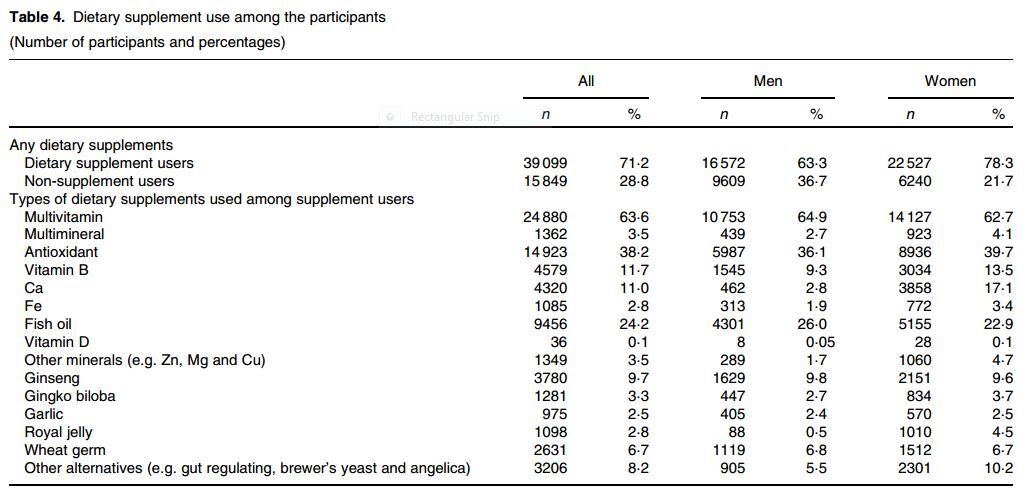The study, which looked at 54948 Danish people aged 50-64, used a health index based on smoking, physical activity, alcohol intake and diet as well as a metabolic risk index based on waist circumference, hypertension and the results of a urine glucose test.
One additional point on the health index meant a 19, 16 and 9% higher likelihood of being a user of any common supplements like vitamins and minerals and less common supplements like herbals, respectively.
One additional point on the metabolic risk index was associated with a 17 and 16% lower likelihood of being a user of any supplement and more common supplements, respectively.
The researchers from the Danish Cancer Society and the University of Copenhagen said the results pointed to possible stumbling blocks in nutrition research.
"These findings support the previous findings that supplement users are generally more health- conscious, also in this population with a high prevalence of supplement use. Thus, lifestyle and dietary composition should be considered as confounders in studies on supplement use and health outcomes," they wrote in the British Journal of Nutrition.
Overall 71% of the participants had used at least one food supplement during the previous 12 months. Older females with a higher education level were amongst the most likely consumers.
The data was collected as part of the Danish cohort 'Diet, Cancer and Health' and recorded the intakes of its participants between 1993 and 1997.
Who takes what?

The researchers said little data existed on the specificities of Danish food supplement use.
The study showed about 24% of the participants took omega-3 fish oil supplements, while this broke down to 26% of men and almost 23% of women.
About 63% of all participants took multivitamins, while only 3.5% took multiminerals. Over 38% took antioxidant supplements, with this being slightly higher for women. The most commonly consumed herbal was ginseng, which 9.7% of the participants took. While 6.7% took wheat germ supplements.
The data was collected using a food recall survey for the previous 12 months.
Source: British Journal of Nutrition
Published online ahead of print,doi:10.1017/S0007114515001440
"Determinants of dietary supplement use – healthy individuals use dietary supplements"
Authors: C. L. F. Kofoeda, J. Christensena, L. O. Dragsteda, A. Tjønnelanda and N. Roswalla
